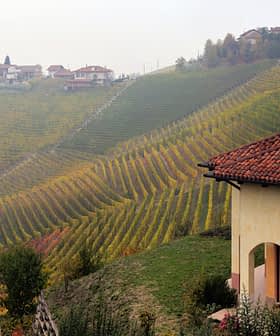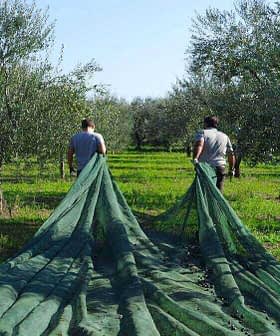Centonze, a Forward-Looking Farm Rooted in Sicily's History
In western Sicily’s Belice Valley, Centonze produces award-winning extra virgin olive oil, celebrating the land and history, while focusing on sustainability and innovation.
 Harvesting at night at Centonze
Harvesting at night at Centonze Among the many appealing qualities of extra virgin olive oil is the strong bond the product shares with the territories where it is produced.
Starting from the label on to the sensory profile, Centonze Case di Latomie strives to provide customers a taste of its land and history.
In all of this scenery, you breathe the origins of olive farming.
“The salient trait of our farm is outlined by the name, Case di Latomie,” Nino Centonze told Olive Oil Times. “Our orchards lie close to the archaeological park of Selinunte, the largest in Europe. They include some remains dating back to 800 BC, namely a group of stone quarries.”
“Called latomie, from the Greek words λᾶας, stone, and τέμνω, to cut, they have been dug by the people who once lived here to obtain the blocks of limestone tuff used in the construction of the adjoining village,” he added.
See Also:Producer ProfilesAmong the vestiges, centuries-old olive trees thrive, one of which is estimated to be about 1,200 years old. These living witnesses to history are part of a 90-hectare olive grove comprising 9,000 Nocellara trees, nestled in the heart of the Belice Valley.
“Most of them descend from wild olive trees, which were grafted by peasants in former times,” Centonze said. “An interesting peculiarity is that they are rooted directly on the calcareous tuff, and I think that this mineral component has a positive effect on the flavor, rounding off the typical notes of artichoke, grass, tomato and almond of our extra virgin olive oils.”
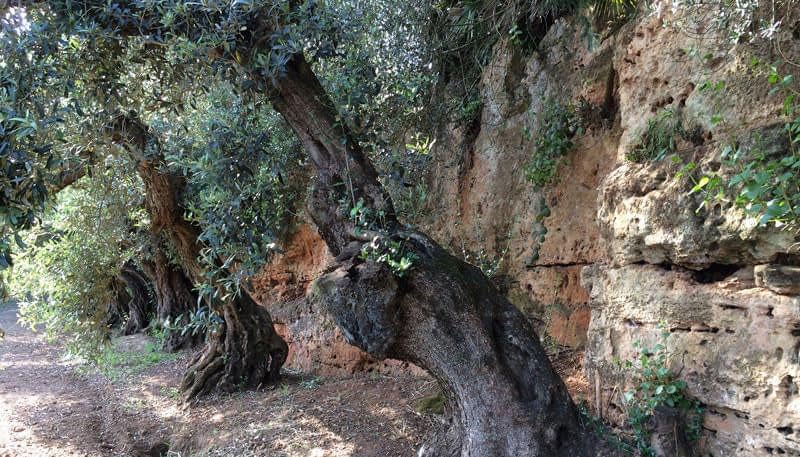
Biancolilla, traditionally inserted as a pollinator, and a few Cerasuola and Giarraffa trees, characterized by large fruits, complete the composition of the grove.
“I define us as an archaeo-olive farm. Here, you can stroll through a historical landscape, in the shadow of monumental trees that have been handed down over generations,” Centonze said. “In all of this scenery, you breathe the origins of olive farming. We know that the olive tree is autochthonous to the Middle East. “
“Greeks, in fact, due to their contacts with that area, were among the very first peoples to grasp its value and spread its cultivation,” he added. “Olive oil becomes so important for lighting houses, temples and ports, that they brought the tree with them when they settled in Sicily.”
“Today, with the support of my family, I look after this land, protecting its cultural and environmental treasures, while innovating and improving our company,” Centonze continued.
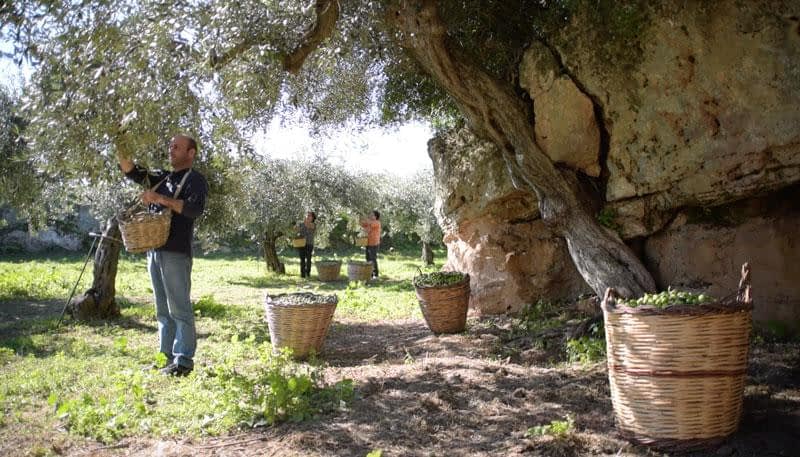
The property was established in the early 1950s by his namesake grandfather, and in 2000, his father, Giacomo, started to set up a farmhouse.
“At that time, our extra virgin olive oil was increasingly appreciated by our guests, tourists and travelers from all over the world,” Centonze said. “We had many requests, and this prompted me to create the packaging of what was our first half-liter bottle. It was 2009, and I focused on high-quality production, first relying on a good oil mill nearby and afterward building our own production facility.”
The estate now includes a 29-room farmhouse with a spa and two outdoor pools, alongside a restaurant with farm-to-table products and an adjacent organic vegetable garden. From here, a short walk through the olive trees takes guests to the state-of-the-art company mill.
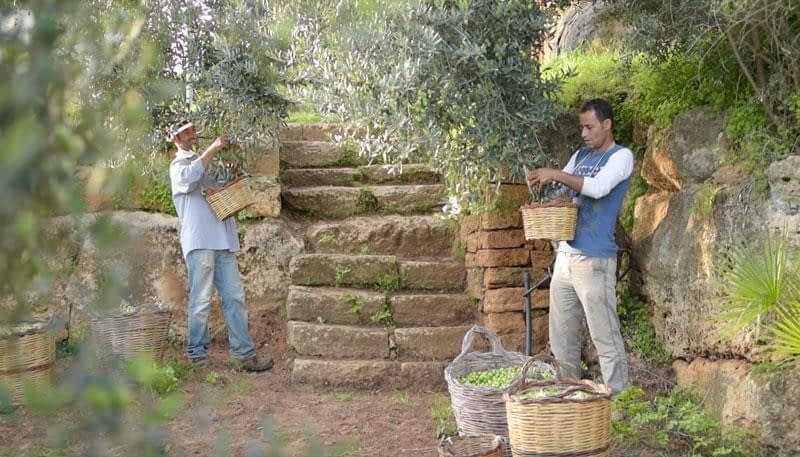
“Only the smallest fruits are crushed in the two-phase machinery, within a few hours after being hand-picked and selected,” Centonze said.
He added that the drupes are collected and immediately sorted, as the larger ones are intended for table olive consumption. After being sorted, they are processed according to different methods.
The table olive production process and olive oil culture, in general, are so central to the town of Castelvetrano, where Centonze’s farm is located, that its name was given to a popular method to prepare table olives.
“Nocellara can reach considerable dimensions associated with a major aqueous component,” he said. “Therefore, we choose the fruits by size in order to obtain oils that have excellent features, including a proper amount of polyphenols, just like those that over the years have been awarded at the NYIOOC World Olive Oil Competition.”
Among these is Chiaro di Luna, an extra virgin olive oil harvested under the moonlight.
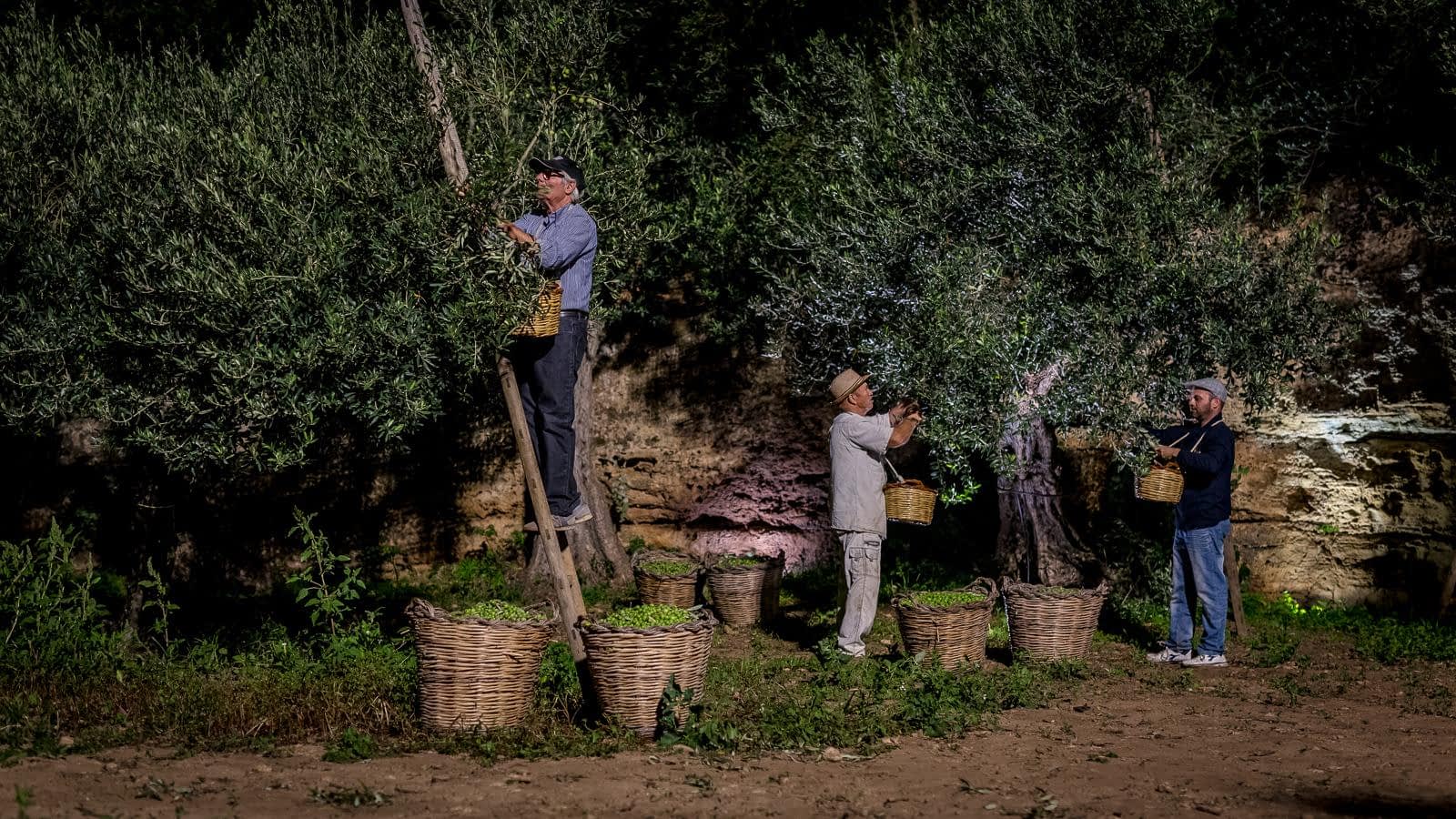
“Every year, for a couple of weeks the clearest nights are dedicated to night operations,” Centonze said. He is among the pioneers of night harvesting.
“In this way, we have absolute control of temperatures since we usually start harvesting between September 27th and 30th and we go on throughout the month of October, which is still warm during daytime with up to 25 ºC to 26 °C,” he said. “This procedure allows us to take advantage of the lower temperatures after 11 p.m. and to stress out the olives as little as possible.”
Whether it is under the sun or the moonlight, the oil is left to decant for a maximum of one day once it has been extracted, before it is filtered and stored under nitrogen.
“At this moment, we are in the process of creating a new in-line storage system,” Centonze said. “This update shall basically ensure that the oil will be completely protected from oxygen until bottling.”
A general upgrading of the company is underway, which involves the expansion of the farming land. Another 25 hectares are set to host new olive groves. A total of 22,000 trees will be planted by the beginning of 2022.
Centonze said his team is committed to managing the vast estate with the lowest environmental impact. The energy of the whole company is obtained by photovoltaic panels and a biomass heating system in the facility, which allows Centonze to reuse pomace and pits resulting from the extraction of olive oil.
“We are focused on sustainability, paying the utmost attention to the transformation and use of by-products,” Centonze said. “We have at heart the protection and the respect of this territory.”
“This is also a way to honor our consumers in the world, as we want to offer them a true Sicilian extra virgin olive oil, one that springs from a healthy and beautiful land and, wherever they may be, gives them a taste of it,” he concluded.

